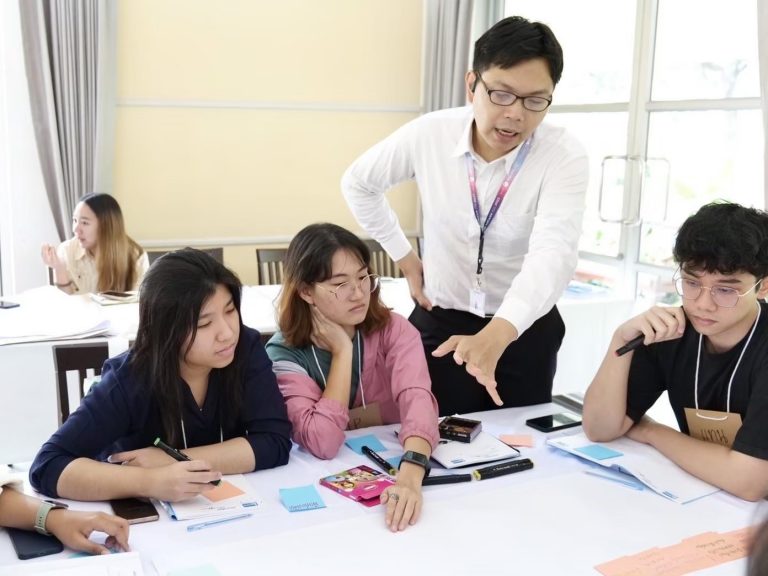Driving Policy with Grit and Strong Network
"If we want to advocate for policies, we need to understand the problem and context firsthand. This was something I learned as a Fellow—we often heard about inequality in theory, but living with ethnic groups and students at the school, I saw how marginalized people's life experiences can be, and how unequal it can become."
One of the many roles that "Non" – Jeta Jiranuntarat, a Teach For Thailand alumnus from cohort 7, holds is as the co-coordinator of the Global Youth Biodiversity Network (GYBN), a network that advocates for climate change policies and youth participation.

Non recently represented the network at the hearing of “(Draft) Action for Climate Empowerment” bill, organized by the Department of Climate Change and Environment (DCCE), Ministry of Natural Resources and Environment, in June.
“GYBN is recognized by the Convention on Biological Diversity (CBD) under the United Nations (UN) as a leading force in driving biodiversity-related policies. This network is the most influential in this field.”
Non explains what policy advocacy involves:
“Policy advocacy involves creating a platform where government agencies, private sectors, NGOs, community organizations, and young people can work together. If the government trusts us, recognizes our potential, and values our voice, we can collaborate for mutual benefit.”
Non attended the hearing of "(Draft) Action for Climate Empowerment” bill (credit: GYBN Thailand)
Non’s role involves coordinating efforts to create a space where all parties can listen, participate, and contribute to sustainable change. He faces several challenges in both advocating for policies and working with people from diverse backgrounds. Non draws on the skills he gained as a Fellow to overcome these obstacles.
“Patience and persistence are crucial in policy advocacy because the process can take at least 2-3 years. The same applies to teaching. We may not see immediate changes in our students, and perhaps not even within 1-2 years, but there is joy in seeing them enjoy the classroom environment we’ve created. The ultimate goal remains the same.”
Empathy also plays a key role in moving toward the goal:
Non gives his opinion as a youth at the Local Conference of Youth (LCOY) Central 2023
“When discussing problems in Thailand or working with government agencies, people often ask, ‘Why can’t it be done better?’ But when we start working with them, we need to be patient and understand their context and limitations.”
“Another strategy is to align everyone’s goals. Some are ready to support and listen to us, so we need to find common ground that benefits all parties, ensuring sustained advocacy in the long term.”
Aside from policy advocacy, Non still enjoys designing learning experiences. He uses “Climate Fresk” card games to conduct climate awareness workshops for youth and the general public, helping to raise awareness about environmental issues.
"Climate Fresk," a card game that raises awareness about environmental issues.
“Environmental problems require awareness to inspire action. That’s why communication is crucial. Because of this, GYBN and I are increasingly involved in activities and panel discussions on environmental issues, including the CCCL Film Festival and Greenmusic.”
Non’s work is grounded in his belief that, while we may contribute to or be affected by problems, as we learn and grow, we can step up to become change agents and networkers who drive long-term solutions, leading to more sustainable change in the country.
Become part of the change through the Fellow Leadership Program and join the leadership network for better Thai education here: https://tft-fellowship.org

